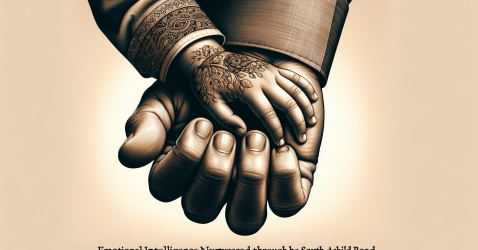Personality Assessments For Career Success
Have you ever wondered how your personality impacts your career success? Personality assessments can provide valuable insights into your strengths, preferences, and areas for growth within the workplace. By understanding your unique personality traits, you can make informed decisions, maximize your potential, and build strong relationships with colleagues. In this article, we explore the benefits of personality assessments and how they can contribute to your professional development. So, get ready to discover the power of self-awareness and unlock new opportunities for career growth.
Understanding Personality Assessments
What are personality assessments?
Personality assessments are tools used to evaluate and measure various aspects of an individual’s personality. These assessments are designed to provide insights into an individual’s preferences, behavior patterns, and characteristics, which can be valuable in understanding how they may perform in different situations or roles. Personality assessments are often used in career development to help individuals gain self-awareness, identify their strengths and weaknesses, and make informed decisions about their professional paths.
How do they work?
Personality assessments typically consist of a series of questions or statements that individuals are asked to respond to. These questions or statements are designed to gauge different aspects of personality, such as introversion versus extroversion, agreeableness, conscientiousness, and emotional stability. Based on the responses provided, the assessments generate a profile that highlights the individual’s dominant traits and provides insight into their preferred ways of working, communicating, and interacting with others.
Types of personality assessments
There are various types of personality assessments available, each with its own unique approach and focus. Some common types include the Myers-Briggs Type Indicator (MBTI), the Big Five Personality Traits, the DISC Assessment, the Enneagram, and StrengthsFinder. These assessments differ in terms of the traits they measure and the framework they use to categorize individuals into different personality profiles. Employers and individuals often choose assessments that align with their specific needs and goals.
Benefits of Using Personality Assessments in Career Development
Identifying strengths and weaknesses
Personality assessments can help individuals gain a deeper understanding of their strengths and weaknesses. By identifying their natural talents and areas for improvement, individuals can make informed decisions about which career paths may be a good fit for them. For example, someone who scores high in extraversion and communication skills may thrive in a customer-facing role, while someone who is detail-oriented and analytical may excel in a career that requires data analysis.
Enhancing self-awareness
Self-awareness is a crucial aspect of personal and professional growth. Personality assessments provide individuals with insights into their personality traits, preferences, and behaviors, helping them become more aware of their own strengths, weaknesses, and tendencies. This self-awareness can be used to make conscious decisions about career choices, work environments, and team dynamics that align with their individual preferences and values.
Determining job fit
Personality assessments can also be used to assess job fit. By comparing an individual’s personality profile with the requirements and characteristics of a specific job or industry, assessments can help individuals determine whether a particular role or career path is likely to be a good fit for them. This can save time and effort by ensuring that individuals focus their energy on pursuing opportunities that align with their natural inclinations and strengths.
Career exploration and decision-making
Personality assessments can serve as valuable tools for career exploration and decision-making. By providing individuals with insights into their behavioral tendencies, interests, and preferences, these assessments help individuals narrow down their options and explore paths that are likely to be a good fit for them. Personality assessments can help individuals gain clarity about their career goals and make informed decisions about pursuing specific opportunities or educational paths.
Popular Personality Assessments
Myers-Briggs Type Indicator (MBTI)
The Myers-Briggs Type Indicator (MBTI) is one of the most widely used personality assessments. It is based on the work of Carl Jung and assesses individuals across four dimensions: extraversion vs. introversion, sensing vs. intuition, thinking vs. feeling, and judging vs. perceiving. The MBTI categorizes individuals into 16 different personality types, each with its own unique preferences and characteristics. This assessment is commonly used to gain insights into an individual’s communication style, problem-solving approach, and decision-making process.
Big Five Personality Traits
The Big Five Personality Traits is another popular assessment that measures five broad dimensions of personality: openness, conscientiousness, extraversion, agreeableness, and neuroticism. These dimensions provide a comprehensive overview of an individual’s personality and are often used to assess job fit and predict performance in various roles. The Big Five Personality Traits assessment provides a nuanced understanding of an individual’s characteristics and can help guide career decisions based on their personality profile.
DISC Assessment
The DISC assessment is a tool used to assess an individual’s behavioral strengths and tendencies. It categorizes individuals into four main personality styles: dominance, influence, steadiness, and conscientiousness. The DISC assessment is commonly used in the workplace to enhance communication, build effective teams, and improve understanding between colleagues. By understanding their own DISC profile, individuals can gain insights into their preferred work styles, communication preferences, and areas for growth.
Enneagram
The Enneagram is a personality assessment that focuses on nine different personality types, each with its own motivations, fears, and coping mechanisms. The Enneagram is often used for personal and professional development, as it provides individuals with a deeper understanding of their core fears, desires, and patterns of behavior. By exploring their Enneagram type, individuals can gain insights into their strengths, potential blind spots, and areas for personal growth, which can be valuable in shaping their career paths.
StrengthsFinder
StrengthsFinder is an assessment developed by Gallup that identifies an individual’s top five strengths out of a list of 34 different themes. This assessment is based on the belief that individuals should focus on maximizing their strengths rather than trying to improve their weaknesses. By gaining insight into their unique strengths, individuals can apply those strengths in their career development, seek out opportunities that align with their strengths, and excel in their chosen field.
How to Take a Personality Assessment
Finding a reputable assessment
When taking a personality assessment, it is important to ensure that you are using a reputable and validated assessment tool. Look for assessments that have been developed by psychologists or experts in the field of personality assessment. Research the background and reputation of the assessment and choose one that has been widely used and validated in various settings.
Reading and understanding the results
Once you have taken a personality assessment, it is important to take the time to thoroughly review and understand the results. Read through the assessment report, paying attention to the descriptions of your personality traits, preferences, and characteristics. Reflect on how these findings align with your own self-perception and consider how they may influence your career choices and development opportunities.
Seeking feedback and interpretation
While personality assessments provide valuable insights, it can also be helpful to seek feedback and interpretation from a career coach, counselor, or trusted mentor. These professionals can provide additional context and help you make sense of your assessment results in relation to your career goals and aspirations. They can offer guidance on how to leverage your strengths, address potential weaknesses, and explore potential career paths based on your assessment profile.
Integrating Personality Assessment Results in Career Planning
Identifying compatible industries and roles
One of the key benefits of personality assessments in career development is their ability to help individuals identify compatible industries and roles. By understanding your own personality profile, you can identify industries and roles that align with your natural inclinations and preferences. For example, if you have strong analytical skills and a preference for structured environments, a career in data analysis or finance may be a good fit for you.
Setting realistic career goals
Personality assessments can also help individuals set realistic career goals. By gaining awareness of their strengths and weaknesses, individuals can identify areas for improvement and determine the skills and experiences they need to develop to achieve their desired career goals. Personality assessments provide a foundation for setting achievable and realistic goals that align with an individual’s natural tendencies and characteristics.
Developing a professional development plan
Integrating personality assessment results into career planning involves developing a professional development plan that is tailored to an individual’s strengths and areas for growth. By leveraging their strengths, individuals can seek out opportunities to develop and enhance their skills in areas that come naturally to them. At the same time, they can identify areas for growth and create a plan to build the necessary skills or seek training in those areas.
Creating a personal brand
Personality assessment results can also inform an individual’s personal brand. By understanding their unique strengths, preferences, and characteristics, individuals can develop a personal brand that accurately reflects who they are and what they bring to the table. This can be valuable in networking, job interviews, and overall career advancement, as individuals can effectively communicate their unique value proposition and stand out in the crowded job market.
Considerations and Limitations
Validity and reliability of assessments
While personality assessments can provide valuable insights, it is important to consider their validity and reliability. Not all assessments are created equal, and some may have limited research or validation behind them. When using personality assessments for career development, it is crucial to choose assessments that have been rigorously tested and validated to ensure accurate and reliable results.
Contextual factors
Personality assessments provide a snapshot of an individual’s personality traits and preferences at a specific point in time. It is important to consider that personality can be influenced by various contextual factors, such as life experiences, cultural background, and situational circumstances. While assessments offer valuable insights, it is important to take these contextual factors into account and not solely rely on assessment results when making career decisions.
Overreliance on assessments
While personality assessments can be valuable tools in career development, it is important not to over-rely on them. Assessments should be viewed as one piece of the puzzle and used in conjunction with other career exploration methods. It is important to consider factors such as values, interests, skills, and personal experiences when making career decisions, rather than relying solely on the results of a single assessment.
Maximizing the Benefits of Personality Assessments
Using assessments as a starting point
Personality assessments should be used as a starting point in the career development process. They provide valuable insights into an individual’s preferences and behavior patterns, but further exploration and reflection are necessary to make informed career decisions. Use the assessment results as a foundation and consider additional factors, such as values, interests, and personal goals, to create a comprehensive career plan.
Combining assessments with other career exploration methods
To maximize the benefits of personality assessments, it is beneficial to combine them with other career exploration methods. Engage in activities such as informational interviews, job shadowing, or internships to gain firsthand experience and insights into different industries or roles. Consider taking skills assessments or conducting self-reflection exercises to gain a holistic understanding of your unique strengths, values, and interests.
Working with a career coach or counselor
Working with a career coach or counselor can be highly beneficial in maximizing the benefits of personality assessments. These professionals can provide guidance, feedback, and interpretation of assessment results, helping you gain a deeper understanding of how your personality traits and preferences align with your career goals. They can also assist you in developing a comprehensive career plan and provide support throughout your career development journey.
Ethical Considerations in Personality Assessments
Confidentiality and privacy
Confidentiality and privacy are crucial ethical considerations when using personality assessments. Individuals should have confidence that their assessment results will be kept confidential and not shared without their consent. Employers and organizations should ensure that appropriate measures are in place to protect individuals’ personal information and only use assessment results for the intended purpose, maintaining the highest standards of professionalism and integrity.
Avoiding bias and discrimination
Another ethical consideration in personality assessments is the avoidance of bias and discrimination. Assessments should be designed and administered in a way that is fair and unbiased, giving equal opportunities to individuals from diverse backgrounds. They should not discriminate against individuals based on their gender, race, age, or any other protected characteristic. Organizations should strive for inclusivity and ensure that assessments are used as tools for development rather than exclusion.
Ensuring informed consent
When using personality assessments, it is important to ensure informed consent. Individuals should have a clear understanding of the purpose of the assessment, how their data will be used, and any potential risks or limitations associated with the assessment. Informed consent involves providing individuals with all necessary information and allowing them to make an informed decision about whether or not to participate in the assessment.
Common Misconceptions about Personality Assessments
Determining success or potential
One common misconception about personality assessments is that they can determine an individual’s success or potential. While these assessments provide valuable insights, they should not be used as the sole determinant of an individual’s capabilities or future achievements. Factors such as skills, education, experience, and personal drive also play a significant role in career success and should be considered in conjunction with assessment results.
Categorizing individuals into rigid boxes
Personality assessments should not be used to categorize individuals into rigid boxes or stereotypes. Each individual is unique and complex, and personality assessments should be seen as tools to gain insights and self-awareness rather than definitive labels. While assessments can provide a framework for understanding and categorizing certain traits and preferences, it is important to recognize the individuality and complexity of each person.
Personality assessments as sole career decision-making tools
Personality assessments should not be relied upon as the sole career decision-making tools. They provide valuable insights into an individual’s preferences and behavior patterns, but career decisions should be based on a combination of factors, including values, interests, skills, and personal goals. By considering multiple factors and engaging in self-reflection, individuals can make well-informed career decisions that align with their unique aspirations and potential.
Conclusion
Using personality assessments as a tool for career success can provide individuals with valuable insights into their strengths, weaknesses, preferences, and behavior patterns. These assessments can enhance self-awareness, aid in identifying compatible industries and roles, and guide career exploration and decision-making. By integrating personality assessment results into career planning, individuals can set realistic goals, develop a personal brand, and create a professional development plan that leverages their unique strengths. However, it is important to consider the limitations of assessments, combine them with other career exploration methods, and approach them ethically. Personality assessments should be viewed as a starting point in the career development process, used in conjunction with other factors to make well-informed decisions and maximize career success.
















